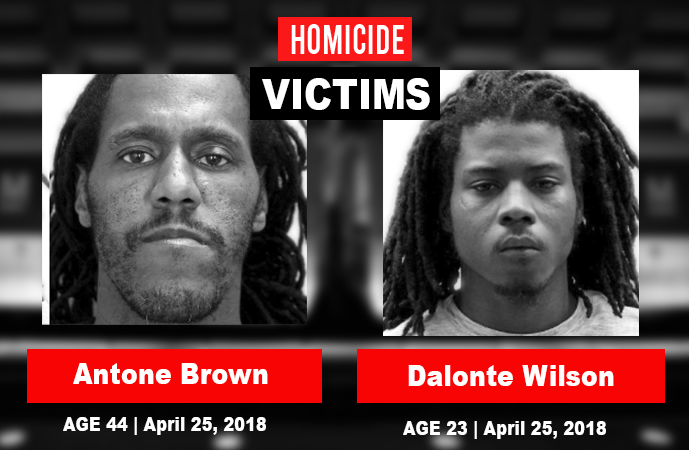
Thank you for reading D.C. Witness. Help us continue our mission into 2024.
Donate NowBy
Alesar Harfoush [former]
- April 25, 2023
Court
|
Daily Stories
|
Homicides
|
Shooting
|
Suspects
|
Victims
|
In order for trial to start DC Superior Court Judge Rainey Brandt denied a murder defendant’s previously filed motion before DC Superior Court Judge Marsia Demeo. The motion claimed there was a violation concerning representatives of jury pools.
Alphonso Walker, 45, is charged with two counts of first-degree murder in connection to the death of Delonte Wilson, 23, and Antone Brown, 44, near the 400 block of 61st Street, NE on April 25, 2018.
“You can’t have your cake and eat it too” said Judge Brandt to the defense about filing the motion and also going through with trial.
During opening statements on April 24, the prosecution asked the jury to find Walker guilty of every single charge, stating Walker chose to execute two people because he felt disrespected.
According to the prosecution, Walker was involved in an argument with two women, one of them he paid $12 worth of drugs in exchange for sex and the other was the one who sold him the $12 worth of drugs.
After taking the drugs the woman, who was supposed to have sex with Walker, ran away from him without having sex, which made him mad, the prosecutor said. Walker then went to the woman who sold him drugs and asked for his money back. The woman told him that he needed to deal with the woman who ran away from him.
While arguing with her, according to the prosecution, a man pistol whipped Walker from the back and ran into a house where the shooting happened.
Walker then followed the man into the house and shot Wilson, who was the first person he saw. He then tried asking Brown to give him all his money and when Brown did not cooperate, Walker shot him in the head and fled the house, the prosecutor said.
Defense attorney Prescott Loveland told the jury that Walker is innocent and that the only fair and just verdict is a not guilty verdict otherwise this would become a tragedy.
Loveland said Walker was never in the house where the shooting happened, which is why the prosecution was not able to find his DNA.
He also added that the prosecution’s case will rise and then fall because it is solely based on the testimonies of two people who cannot be believed or trusted.
Both of the prosecution’s witnesses are individuals who benefited by pointing at an innocent person as the suspect, Loveland said.
One did it for the reward money, the other did it to sit in the witness’s chair instead of the defendant’s chair because he is the shooter, he explained.
One of the prosecution’s witnesses,a man who was in the house during the shooting, was seen by neighbors running out with valuable items that belonged to the victims, according to the defense.
After both parties delivered their statements, the prosecution called both of Brown and Wilson’s sisters to testify about the day their brothers were killed.
Both sisters identified Brown and Wilson’s pictures and told the jury how they learned, from a phone call, that their brothers were shot and killed.
Parties are scheduled to return to court on April 25.
Follow this case